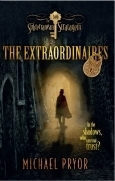Michael Pryor's Blog, page 16
June 20, 2013
The Series Question
Look around the bookshops and the libraries and you’ll see series all over the place. On some stretches of shelves, you could be forgiven for thinking that EVERYTHING is part of a series.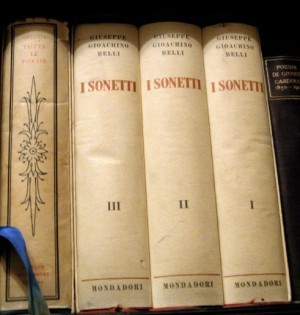
And, as an aside, don’t you hate browsing in a library, spotting a book that looks interesting, then flipping it over to reveal it’s ‘Book 3 of the seven book Snurgurupiad Saga’ and Books 1 and 2 are nowhere to be seen?
Fantasy seems to be the home of series. Much of it seems to be in homage to Tolkien’s ‘Lord of the Rings’, the original trilogy. Those with a sense of history (and those who are at all curious) know that LoTR wasn’t designed to be a trilogy. Tolkien wrote it as a single book, but Allen and Unwin (the original publishers) thought it was simply too bulky to release in one whomping great volume.
But once the pattern was set, it seems as if fantasy readers have come to enjoy and even expect a trilogy – or more. There’s something comforting about a series, where you know the characters, the setting and you can revel in the unfolding story. Of course, some series outstay their welcome. Sometimes you get up to Book Four and the characters are still rattling around and you just want to shake them and yell, ‘GET ON WITH IT! YOU’VE GOT A WHOLE DAMN PROPHECY TO FULFIL AND YOU’VE ONLY GOT THREE BOOKS LEFT TO DO IT IN!’
As a writer of fantasy, a series is often a natural thing. Once you’ve gone to all the trouble of creating your fantasy world, it seems as if there is more than one story to tell.
Some questions. The paradigmatical series, the trilogy. Is it one story split into three, or is it three stories glued together into one? LoTR, as mentioned above, is one story chopped up into three volumes for practical reasons. It reads like that, too.
And what about the problem of the second book? The first book sets up the theme, characters, sets the story in motion. The last book brings it all to a conclusion – often with a massive battle. The second book is a challenge. It must have its own integrity. It can’t simply mark time. It shouldn’t be simply a bridge. It’s a challenge for a writer.
And what do you call your series? ‘The XXX Trilogy’ has been done to death. We have plenty of Sagas, Tapestries, Chronicles, Sequences, Songs, Volumes, Cycles etc etc. What’s left? ‘The XXX Directory’? ‘The XXX Wall Hanging’? ‘The XXX Oratorio’?
I maintain that there are two different sorts of series. One is the classic serial – each book ends on a cliffhanger and isn’t ‘complete’ without the other books in the series. The other sort of series is what I’m trying to do with The Laws of Magic. Each book is complete, comes to a whole and satisfying conclusion. The characters and setting remain the same, however, and with each book they have another set of adventures. Blaze of Glory, the first book, comes to a conclusion. The second book – Heart of Gold – doesn’t take up where Blaze of Glory left off. There is a six month time lapse, then a whole and complete adventure takes off. And so with, Word of Honour, Time of Trial and so on – complete, standalone adventures, each coming to a self- contained conclusion at the end of the book, but united by the overall story arc that extends across what will be six books when the series is completed. In this sense, The Laws of Magic and my new series, The Extraordinaires, are more like novel sequences than a series, something like Patrick O’Brian’s Aubrey-Maturin books. Or – and I hesitate to raise the name of The Master – something like Enid Blyton’s Famous Five books. Although I do wonder about how applicable the notion of story arc across the Famous Five sequence is …
Series, serial, novel sequence. In the end this is all just hair-splitting. Series are here to stay. Some people roll their eyes whenever a series is mentioned, but for a writer a series can be the expansive canvas that large ideas and large stories need.
June 6, 2013
The Romance of Luggage
I don’t get excited about shopping for much, but two items do get the old heart racing: plastic containers (a story for another time) and luggage.
I love luggage. Suitcases, carry-on luggage, backpacks, laptop bags, duffle bags, multipurpose hold-alls. I get absorbed in details of hard-sided vs. soft-sided, construction materials, stitching, TSA locks, internal accommodation, handles top and side, robustness of wheels, stuff like that. I’m entranced by the subtleties of weight – ‘What? With the Travel-Meister I can fit in another pair of shoes and still avoid excess baggage payment? I’ll have one in mint green, please!’ I dwell on colours, because we all want something that will stand out on the baggage conveyor, which means that no-one has anything that stands out on the baggage conveyor.
I even like the smell of luggage, so similar but different from new car smell. I get all comparisony about the virtues of different sizes and systems and brands in a way that I probably wouldn’t even with a buying a car, where ‘Yeah, that’ll do’ is probably my usual strategy.
I think I know why I’m so caught up in the romance of luggage. It’s pretty obvious, really. Luggage is a means to an end. Luggage is an integral part of something delightful.
Luggage is part of travel.
I’ve always loved the glorious image of gorgeous, battered steamer trunks from the thirties, plastered with labels from distant, exotic ports – Alexandra, Buenos Aires, Bombay. I’ve dreamed of porters manhandling leather suitcases onto the Orient Express, the Trans-Siberian Railway, the Boat Train. I get all dreamy about travellers toting bags onto the Queen Mary, the Fairstar, or whatever the Women’s Weekly World Discovery Tour is offering this year.
It’s Pavlovian, really. When I see luggage I think of travel. I think of journeys undertaken in the past and the joys they’ve brought me. I think of holidays I’ve gone on and the special times, the very special times that they’ve enabled. When I see luggage I think of trips I’d like to take in the future and the anticipation gets me all a flutter. Yes, St Petersburg! Yes, the Galapagos! Yes, Montenegro! See people, see things, come home with a mind broader and more informed than it ever was before! Get out there, Michael, get out there!
With good luggage, of course, and whistling jauntily as I wheel it along, passport at the ready.
May 29, 2013
Jack Vance
While Jack Vance’s passing on 26/5/13 was hardly a surprise – he was ninety-six – it still saddened me. Jack Vance might still be largely unknown outside genre circles, but he has been enormously important for me.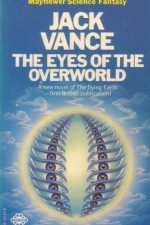
I picked up my first Jack Vance novel in Adelaide when I was fifteen. The Eyes of the Overworld was a slap in the face, a dash of cold water, a literary Taser. I’d literally never read anything like it. I devoured the book whole and I’ve re-read it a dozen times since. It’s a wonderful example of mature Jack Vance, a sublime construction following one of Vance’s typical trickster protagonists on a picaresque journey through a wildly imaginative world. This might sound like a thousand other generic fantasies, but Jack Vance is different – startlingly different. His characters are sardonic, often detached and aloof, with motives that are guarded and inscrutable. His prose is inimitable, full of words repurposed for lyrical effect, sentences with jagged, archaic, stylised rhythms. His writing is so carefully purposed, so distinctive, that even the shortest extract announces its creator:
Cugel was a man of many capabilities, with a disposition at once flexible and pertinacious. He was long of leg, deft of hand, light of finger, soft of tongue. His hair was the blackest of black fur, growing low down his forehead, coving sharply back above his eyebrows. His darting eye, long inquisitive nose and droll mouth gave his somewhat lean and bony face an expression of vivacity, candour, and affability. He had known many vicissitudes, gaining therefrom a suppleness, a fine discretion, a mastery of both bravado and stealth.
The whole effect is a supremely idiosyncratic creation, a joy to read and to be part of.
After this, I couldn’t get enough Vance. I sought out his Dying Earth, the precursor to The Eyes of the Overworld, and I was similarly 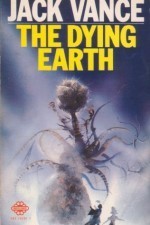 bowled over. Luckily for me, Jack Vance has been a prolific writer, so I had plenty to catch up on. I found The Dragon Masters, his Demon Prince series, the Cadwal series. I was given a copy of The Languages of Pao, his fascinating exploration of the Sapir–Whorf hypothesis where languages determine national characteristics. I tracked down his short stories – read ‘The Moon Moth’ and prepared to be astonished.
bowled over. Luckily for me, Jack Vance has been a prolific writer, so I had plenty to catch up on. I found The Dragon Masters, his Demon Prince series, the Cadwal series. I was given a copy of The Languages of Pao, his fascinating exploration of the Sapir–Whorf hypothesis where languages determine national characteristics. I tracked down his short stories – read ‘The Moon Moth’ and prepared to be astonished.
When he began his masterly Lyonesse trilogy, I was lining up for it – and not disappointed. Many of his earlier 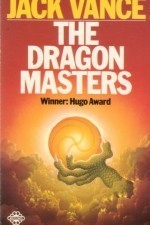 works were short stories or novellas, in truth. The Lyonesse trilogy gave Vance elbow room. The result is elegiac, lyrical, playful, discursive, confronting, melancholic and wistful, a book series to read and re-read again and again.
works were short stories or novellas, in truth. The Lyonesse trilogy gave Vance elbow room. The result is elegiac, lyrical, playful, discursive, confronting, melancholic and wistful, a book series to read and re-read again and again.
Jack Vance is a truly great writer, but one who is appallingly neglected by those unfamiliar with the best that genre can offer. Sometimes this inspires an unhealthy feeling of glee – ‘We have him to ourselves!’ – but more often I’m dismayed that the rest of the reading world is missing out on the work of this extraordinary artist.
Vale, Jack Vance – and thank-you.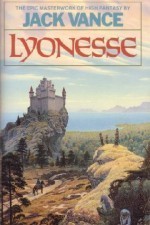
May 23, 2013
The Empire Annual for Girls
Oh, how I love history. And books. And books from history.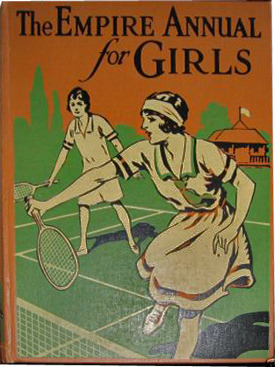
Here’s a real gem: the contents of the 1911 edition of The Empire Annual for Girls, which should tell you a thing or two from the title alone.
THE CHRISTMAS CHILD — MRS G. DE HORNE VAIZEY
The story of a happy thought, a strange discovery, and a deed of love
ANNA — MRS MACQUOID
A girl’s adventure for a father’s sake
TO GIRLS OF THE EMPIRE — MRS CREIGHTON
Words of encouragement and stimulus to the daughters of the Nation
MY DANGEROUS MANIAC — LESLIE M. OYLER
The singular adventure of two young people
JIM RATTRAY, TROOPER — KELSO B. JOHNSON
A story of the North-West Mounted Police
MARY’S STEPPING ASIDE — EDITH C. KENYON
Self-sacrifice bringing in the end its own reward
A RACE FOR LIFE — LUCIE E. JACKSON
A frontier incident from the Far West
WHICH OF THE TWO? — AGNES GIBERNE
A question of duty or inclination
A CHRISTMAS WITH AUSTRALIAN BLACKS — J. S. PONDER
An unusual but interesting Christmas party described
MY MISTRESS ELIZABETH — ANNIE ARMITT
A story of self-sacrifice and treachery in Sedgemoor days
GIRL LIFE IN CANADA — JANEY CANUCK
Girl life described by a resident in Alberta
SUCH A TREASURE! — EILEEN O’CONNOR
How a New Zealand girl found her true calling
ROSETTE IN PERIL — M. LEFUSE
A girl’s strange adventures in the war of La Vendée
GOLF FOR GIRLS — AN OLD STAGER
Some practical advice to beginners and others
SUNNY MISS MARTIN — SOMERVILLE GIBNEY
A story of misunderstanding, patience, and reconciliation
WHILST WAITING FOR THE MOTOR — MADELINE OYLER
A warning to juvenile offenders
THE GRUMPY MAN — MRS HARTLEY PERKS
A child’s intervention and its results
DOGS WE HAVE KNOWN — LADY CATHERINE MILNES-GASKELL
True stories of dog life
DAFT BESS — KATE BURNLEY BENT
A tale of the Cornish Coast
A SPRINGTIME DUET — MARY LESLIE
A domestic chant for spring-cleaning days.
OUT OF DEADLY PERIL — K. BALFOUR MURPHY
A skating episode in Canada
THE PEARL-RIMMED LOCKET — M. B. MANWELL
The detection of a strange offender
REMBRANDT’S SISTER — HENRY WILLIAMS
A record of affection and self- sacrifice
HEPSIE’S XMAS VISIT — MAUD MADDICK
A child’s misdeed and its unexpected results
OUR AFRICAN DRIVER — J. H. SPETTIGUE
A glimpse of South African life
CLAUDIA’S PLACE — A. R. BUCKLAND
How Claudia changed her views
FAMOUS WOMEN PIONEERS — FRANK ELIAS
Some of the women who have helped to open up new lands
POOR JANE’S BROTHER — M. LING
The strange adventures of two little people
THE SUGAR-CREEK HIGHWAYMAN — ADELA E. ORPEN
An alarm and a discovery
DOROTHY’S DAY — M. E. LONGMORE
A day beginning in sorrow and ending in joy
A STRANGE MOOSE HUNT — H. WILLIAM DAWSON
A hunt that nearly ended in a tragedy
A GIRL’S PATIENCE — C. J. BLAKE
A difficult part well played
THE TASMANIAN SISTERS — E. B. MOORE
A story of loving service and changed lives
THE QUEEN OF CONNEMARA — FLORENCE MOON
An Irish girl’s awakening
Don’t we have a lot to ponder here? For a start, it’s definitely an attempt at spanning the British Empire. We have Australia, New Zealand, Canada, Africa, Ireland, even Tasmania(!). But that’s the stuff of serious academic study, as is the notable repetition of the topic of ‘self-sacrifice’ which implies much about the role of women in the Edwardian world.
Frankly, I’m more interested in the quirky stuff revealed by this treasure trove of story titles, teasers and authors. Different times, different values – including some that we shudder at.
For instance, who wouldn’t want to be called Somerville Gibney? I have no idea if the author of ‘Sunny Miss Martin’ can write or not, but imagine that moniker stretched along the top of your book. In gold foil. Embossed.
As for story titles, it’s hard to go past ‘My Dangerous Maniac’, although ‘A Strange Moose Hunt’ is a contender. ‘Rembrandt’s Sister’ is possibly an investigative report into the truly talented member of that the family. ‘The Grumpy Man’ might be lacking the sort of cachet that blockbuster movies have today, but its simple charm could attract readers.
Hours of fun, and if I can’t use Somerville Gibney as a pen-name, I’d be happy to settle for Kelso B Johnson.
May 20, 2013
Free Sample Subterranean Stratagem!
May 16, 2013
Unleash the Power of Words!
Reader feedback time: a recent fan letter  loved the Laws of Magic partly because it ‘has me looking up words very page? (which is what I absolutely love about your books)’.
loved the Laws of Magic partly because it ‘has me looking up words very page? (which is what I absolutely love about your books)’.
Finding the right language level is a crucial aspect of writing for young people, but I maintain that this doesn’t have to mean dumbing down. In fact, as my young reader pointed out, encountering an extended vocabulary can be part of the joy of reading.
Writing in a quasi-Edwardian mode, as in the Laws of Magic and The Extraordinaires series has given me licence to indulge one of my great loves – words. The old fashioned settings allow me to use words that simply wouldn’t be appropriate if I were writing in the here and now – and it encourages me to use the subjunctive, as I just did in this sentence.
To pick one book as an example, in Moment of Truth, the fifth book of The Laws of Magic series, includes ‘upbraid’, ‘ophidian’, ‘froward’, and ‘nugatory’ (trivial, worthless). In other books in the series, I’ve managed to use ‘salmagundi’, ‘Parthian’ and ‘snood’. I love these sorts of words for their exotic, resonant tones, and the mood they help create. They’re redolent of other times and other places and this sort of usage is important in creating the texture of the stories.
Other good stuff I can use to add to the verisimilitude of the setting and characters includes making sure to use the possessive before the gerund, something that looks like an affectation if it’s used today.
While writing like this I’m fully aware that many of my readers are teenagers and the language I’m using could be unfamiliar or, even, challenging. I don’t shy away from this and more often than not, my readers respond.
I don’t think we have to be afraid of using unusual language, as long as it’s not overdone. It’s part of the joy of reading, encountering language used in a different way. It alerts us to the possibilities of expression and communication and it alerts us to language being a subtle and flexible thing.
And it’s fun.
May 11, 2013
Quinces
How I love quinces. Take this hard and unappetising cousin of the apple and cook slowly to see some magic. Gradually, they turn pink, then red, then deep burgundy – and the aroma becomes a fragrant, perfumed delight. These were simmered slowly for five hours and I think I might be using them in a quince crumble. With custard, of course.
Gradually, they turn pink, then red, then deep burgundy – and the aroma becomes a fragrant, perfumed delight. These were simmered slowly for five hours and I think I might be using them in a quince crumble. With custard, of course.
May 1, 2013
The Reading-Writing Nexus
Reading and writings go hand in hand. I wanted to be a writer because I loved reading so much. I wanted to do for other people what writers were doing for me.
In a presentation to a large group of teenagers, I was once asked about the connection between reading and writing. An eager looking young girl put her hand up at the Q&A part of the session, got hold of the microphone and asked: ‘Do you have to read if you want to be a writer?’
Dozens of answers flashed through my mind, but I went with the first: ‘Yes.’
Her reaction? ‘Oh, bummer,’ she said, downcast.
I’m not sure if she suddenly saw her entire career path flying out the window at that moment or what …
Part of my mission in life is to turn non-readers into readers. It makes them better people, for a start, and it might help me stay in a job. When I was still working as teacher and writing part time, one of my colleagues was a physics teacher who would proudly declare he hadn’t read a book since he finished Year 12. And, as an aside, isn’t it interesting how some people say that proudly, as a badge of honour? I would have thought it to be a secret shame, but there you go.
He was my special case. I wouldn’t let it drop. I nagged, and I cajoled, and I wheedled, and I blustered. I don’t know what worked, but one day he sidled up to be and said, ‘Get a look at this.’
And he thrust a library card under my nose. It had his name on it.
‘I thought I’d give it a go,’ he said. ‘Just to get you off my back.
And he wandered off. To bounce some lights through prisms or stare at an oscilloscope, no doubt.
I left it. Didn’t want to pressure him. But I was worried after a few weeks because I hadn’t heard anything.
Then one lunchtime, a month after the LCI (Library Card Incident), he finished his salad roll (no beetroot) and speared me with a look. ‘I’m up to D,’ he said.
‘What?’
‘I’m up to D.’
He explained. Being a methodical man, and new to this reading fiction business, he’d done the only natural thing and started his reading journey with the authors whose names started with ‘A’.
I didn’t burst out laughing. So help me –thanks to my superbly toned diaphragm – I didn’t burst out laughing.
He was quietly pleased with his progress, and we discussed Douglas Adams and John Bunyan and Patricia Cornwell (‘a bit gory’).
This rapport established, from then on, he’d give me little updates: ‘The Fs aren’t much chop’; ‘Liked the Js’; ‘Not many Qs, are there?’
He left the school before he reached the end of the alphabet, and I often wonder where his reading journey took him. Did he get to the end of Z and start again at A? Did he work backward? Did he start reading by title rather than author?
Reading. It’s good for you, and can help you learn the alphabet.
April 17, 2013
Ten Steampunk Novels I Haven’t Had a Chance to Write Yet

The Disraeli Identity
Mary Shelley, Princess of Power
Gilbert and Sullivan and International Domination
Have Pith Helmet, Will Travel
The Revenge of the Colonies
Dirigibles, Digging Machines and Great Big Tanks
The Funicular Network
Giant Cats Destroy London via the Underground (some work needed on that one)
Steamomancer
April 9, 2013
Supanova Melbourne
I’ll be at Supanova Melbourne this weekend (April 13/14). Look for me on the Dymocks Bookstore stand.


